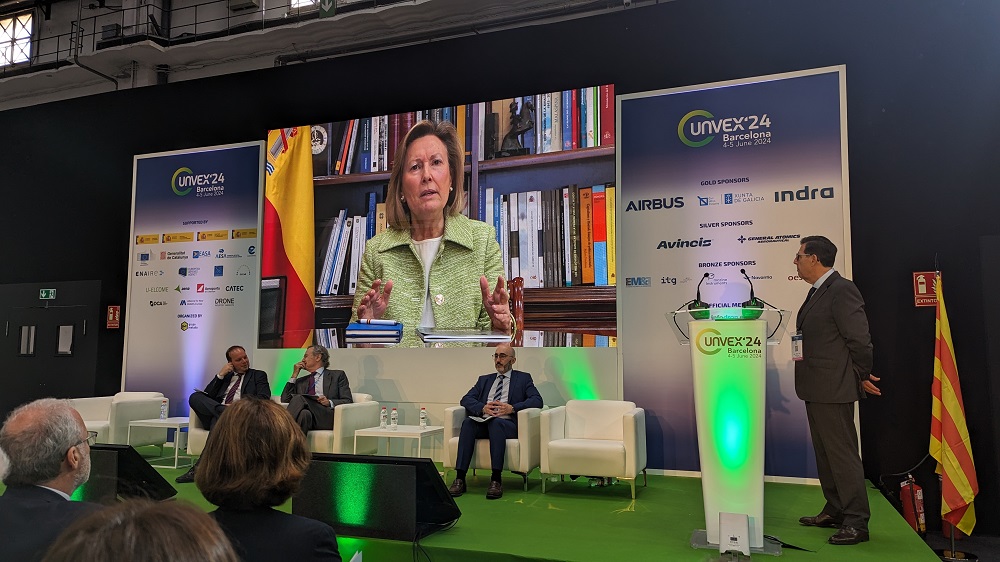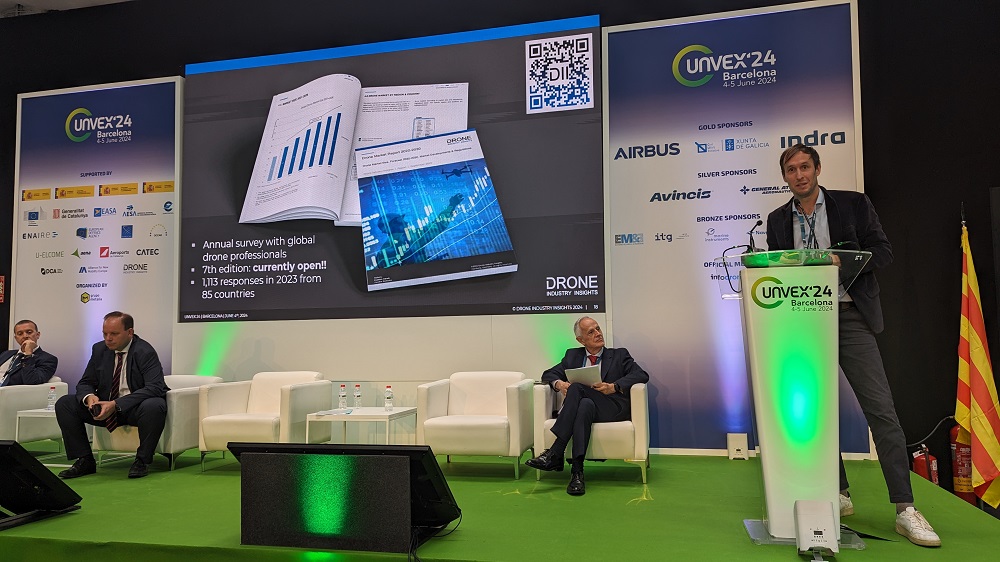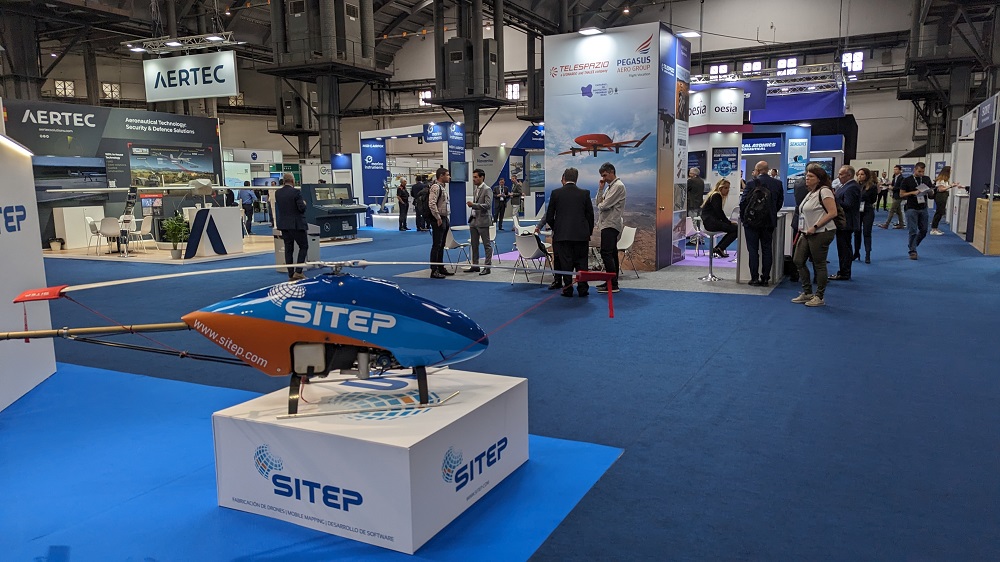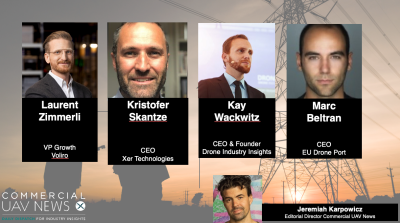Serving as the only event in Europe that addresses the entire community of uncrewed systems, the 9th edition of UNVEX began on June 4th, 2024 in Barcelona, Spain. The event pulled together drone mobility, security and commercial stakeholders from across the continent.
The opening ceremony was kicked off by Ángel Macho from Grupo Metalia, who called out the two biggest challenges related to the growth of the sector being related to regulation and public acceptance. There has been and continues to be development with regulation, but what does it mean to make progress on the part of the public perception?
“It’s our job to transmit the benefits of this technology to everyone, and that’s a responsibility for all of Europe,” said Macho. “We need to make this technology acceptable to everyone.”
On the regulatory side, numerous ministers and regulatory stakeholders took to the stage to outline how things have changed with the technology in Spain and across the country. María Amparo Valcarce, Spanish Secretary of State for Defence, told the crowd about how the department is considering the role that drones will play in the field of Defense.

David Benito Astudillo is the General Director for Civil Aviation at the Ministry of Transport and Sustainable Mobility. He detailed how far things have come and how much is set to evolve with how to fly a UAS in Spain. He also detailed how the department is thinking about operations in Spain by cross-border and third-country UAS operators.
Ricardo Martí Fluxá is the President of TEDAE Association. The Spanish Association of Defense, Aeronautics, Security and Space Technology Companies Commission's priority objective is to strengthen the national industrial fabric of the Sector and position its interests both in Europe and in other international markets. Fluxá detailed how drones have become a high priority for the commission.
These regulatory and policy perspectives were contextualized as part of a spotlight session where speakers from various segments of the drone industry outlined the developments and challenges that define the drone market across Europe in the present.
Montserrat Mestres Domènech is the Director at the Spanish State of Aviation Safety Agency. She detailed the significant progress that has been made for drone technology in Spain, which is home to over 100,000 drone operators. She called out the innovative uses in construction, agriculture, and public safety that have been realized across the country over the past few years, but that more work needs to be done. Helpfully, that work will involve collaborations with other regulators and the FAA in the United States to ensure all of these efforts of built on a foundation of safety.
“Safety is essential to gaining public support, so we need to make sure every step we prioritize safety without losing sight of operational practicality," she told the crowd. "That will require the development of new traffic management systems.”
Pere Ferrer i Sastre is Director at Mossos d’Esquadra, which is the autonomous police force in the Spanish community of Catalonia. He detailed the many ways the Mossos d’Esquadra is using drones, with operational tasks that include surveillance, crowd management, traffic management and critical response, among others. Their investment in the technology has seen them acquire 24 short-range drones and one long-range drone. This long-range drone represents a big change for the department, as they can now patrol with capacities they've never seen before. But he also called out the stakes associated with doing so.
“Drones allow our police force to better serve the community, but we have to adopt it responsibility,” he told the crowd. “We’re using drones to do things like prevent copper theft over railway lines, and we want the public to realize how much more we can do to provide operational air support and tactical intelligence.”
That kind of responsible use of the technology is featured in many of the reports by the team at Drone Industry Insights, and Co-founder Hendrik Bodecker was at UNVEX to outline these applications as well the status of the drone market in Spain.
He mentioned the scale that is set to come to the drone market by 2026 will enable a total global drone market of $53 billion dollars by 2030. However, the industry will need to get past headwinds associated with investment in drone tech, which dropped in 2022 and further fell in 2023.
"This drop in investment is a huge problem because many companies are mature and ready to operate at scale, but they need funding for it,” Bodecker said. He also called out challenges to this growth being associated with the technology itself, UTM development, business success and regulation.

The great news for the audience was about the Spanish drone market, which is arguably the healthiest in Europe. There have been positive changes in marketing and sales in Spain, with staff development also trending up. The Drone Industry Insights team also quantified that Spain was the top country in Europe according to their drone readiness index, highlighting how far things have come and what sort of positive developments are on the horizon.
That growth will undoubtedly take place in Spain but needs to be connected to a better understanding of the social benefits drone technology represents in a way that is not country-specific but instead can be understood across the continent and the entire world. UNVEX enabled attendees to better understand the stakes associated with this type of messaging as well as the best way to communicate it.















Comments